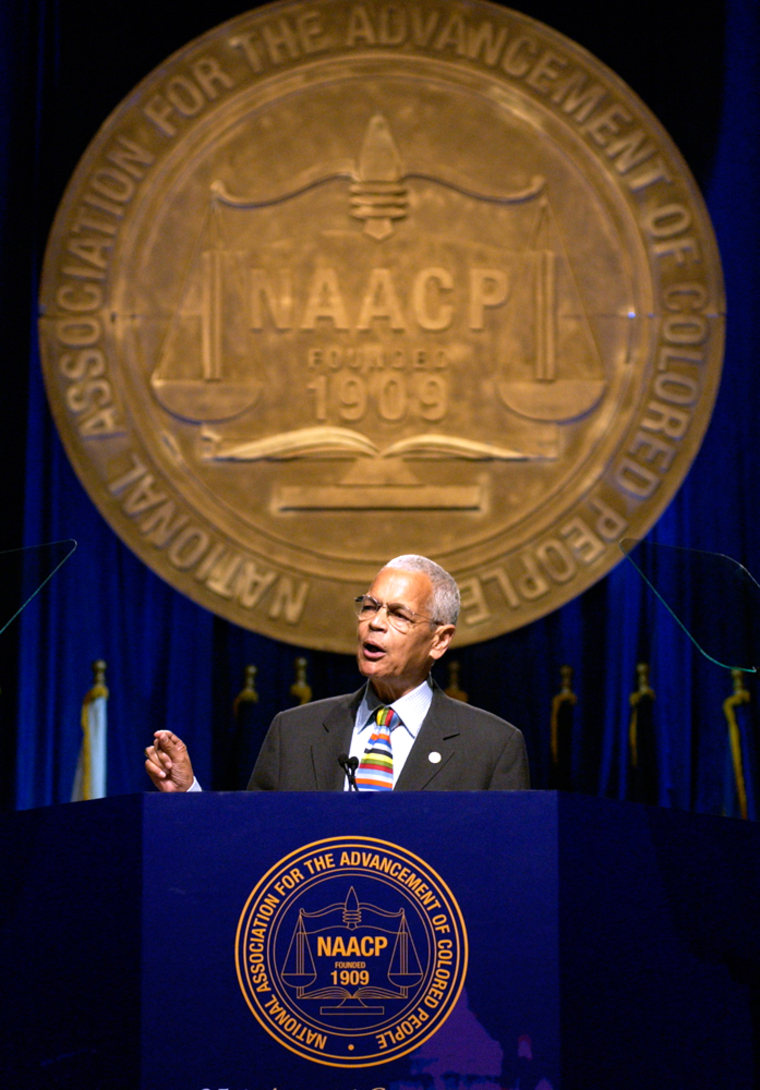NAACP chairman Julian Bond condemned Bush administration policies on education, the economy and the war in Iraq on Sunday, imploring members of the nation’s oldest civil rights organization to increase voter turnout to oust the president from office.
“They preach racial neutrality and practice racial division,” Bond said Sunday night in the 95th annual convention’s keynote address. “They’ve tried to patch the leaky economy and every other domestic problem with duct tape and plastic sheets. They write a new constitution of Iraq and they ignore the Constitution here at home.”
Bond, a leader in the Student Nonviolent Coordinating Committee during the 1960s civil rights movement and a Georgia legislator for 20 years, became chairman of the Baltimore-based National Association for the Advancement of Colored People in 1998.
NAACP volunteers have been working on voter drives in black communities across the country, registering more than 100,000 so far in 11 key states, including Georgia, Florida, Tennessee and New Mexico, Bond said.
Leaders of the group are upset that President Bush has no plans to attend the convention. Bush spoke at the 2000 NAACP convention in Baltimore when he was a candidate but has declined invitations to speak in each year of his presidency, making him the first president since the 1930s to skip it, officials said.
Democratic challenger John Kerry has accepted an invitation to speak Thursday on the final day of the convention, the NAACP said.
Bond said that 50 years after Brown v. Board of Education, the landmark U.S. Supreme Court decision on school desegregation, and 40 years after the passage of the 1964 Civil Rights Act, schools remain segregated based on income, and racism still exists in many forms.
Minority children still face inequality in school spending and are being disproportionately hurt by the accountability aims of Bush’s No Child Left Behind Act, he said.
“On our present course, we are formalizing two school systems: one filled with middle-class children, most of them white, and the other filled with low-income minorities,” Bond said.
